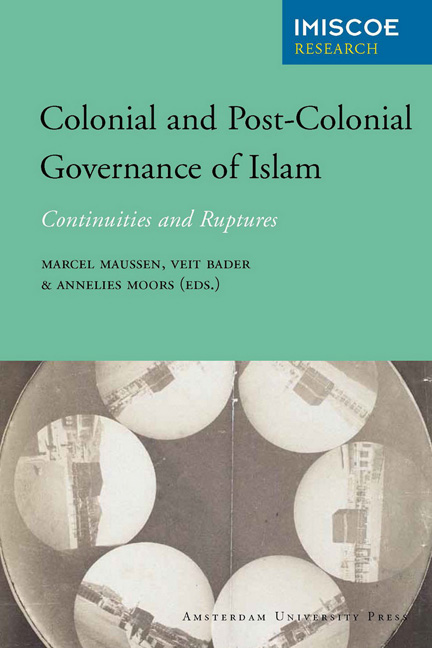11 - Portuguese Colonialism and the Islamic Community of Lisbon
Published online by Cambridge University Press: 05 February 2021
Summary
The Portuguese governance of Islam: Historical background
This chapter deals with a story of power relations between the Portuguese colonial government and the Muslim community that began to settle in Lisbon during the 1960s and attempted to assert itself, both in cultural and political terms. It documents the struggle for social visibility that is involved in the interaction between dominant and subaltern groups. But above all, it offers an example of the kind of governance the Portuguese authorities were forcing upon Muslim communities during colonial rule, more specifically during the ten years of war (1964-1974) that was waged against the nationalist movements in the colonies of Guinea-Bissau and Mozambique.
I will focus on the role of Suleiman Valy Mamede and the association he led, the Islamic Community of Lisbon (ICL), which was set up in the Portuguese capital in 1968. Although the number of Muslims in Lisbon was rather small by that time, Valy Mamede thought he could claim a special rank for himself and his association considering the millions of ‘Islamised’ people who lived in Guinea and Mozambique, then thought to be integral parts of Portugal. In that demographic and political scenery, he cherished the dream of becoming the spokesman of the ‘Portuguese’ Islamic populations, federating them under the ICL, but this project was doomed to failure. It clashed with the colonial authority's attempts, particularly in Mozambique, to gain the support of the local Muslim leadership against the anti-colonial guerrillas. This gave rise to a tug of war: on the one hand, Valy Mamede and his followers sought to promote their place within the colonial order, forcing the Portuguese administration to fulfil a commitment, until then just rhetoric, to a multiracial society; on the other, the colonial government discouraged such attempts that could easily get out of control. In spite of his closeness to some influential circles of Salazar's dictatorship and even the Catholic Church, Valy Mamede ended up being seen by the authorities as a nuisance, someone who could disrupt a delicate balance because he did not fit into the Portuguese strategy. He was so mistrusted that the intelligence services and the political police put him under surveillance until the end of the dictatorship.
- Type
- Chapter
- Information
- Colonial and Post-Colonial Governance of IslamContinuities and Ruptures, pp. 211 - 232Publisher: Amsterdam University PressPrint publication year: 2012



